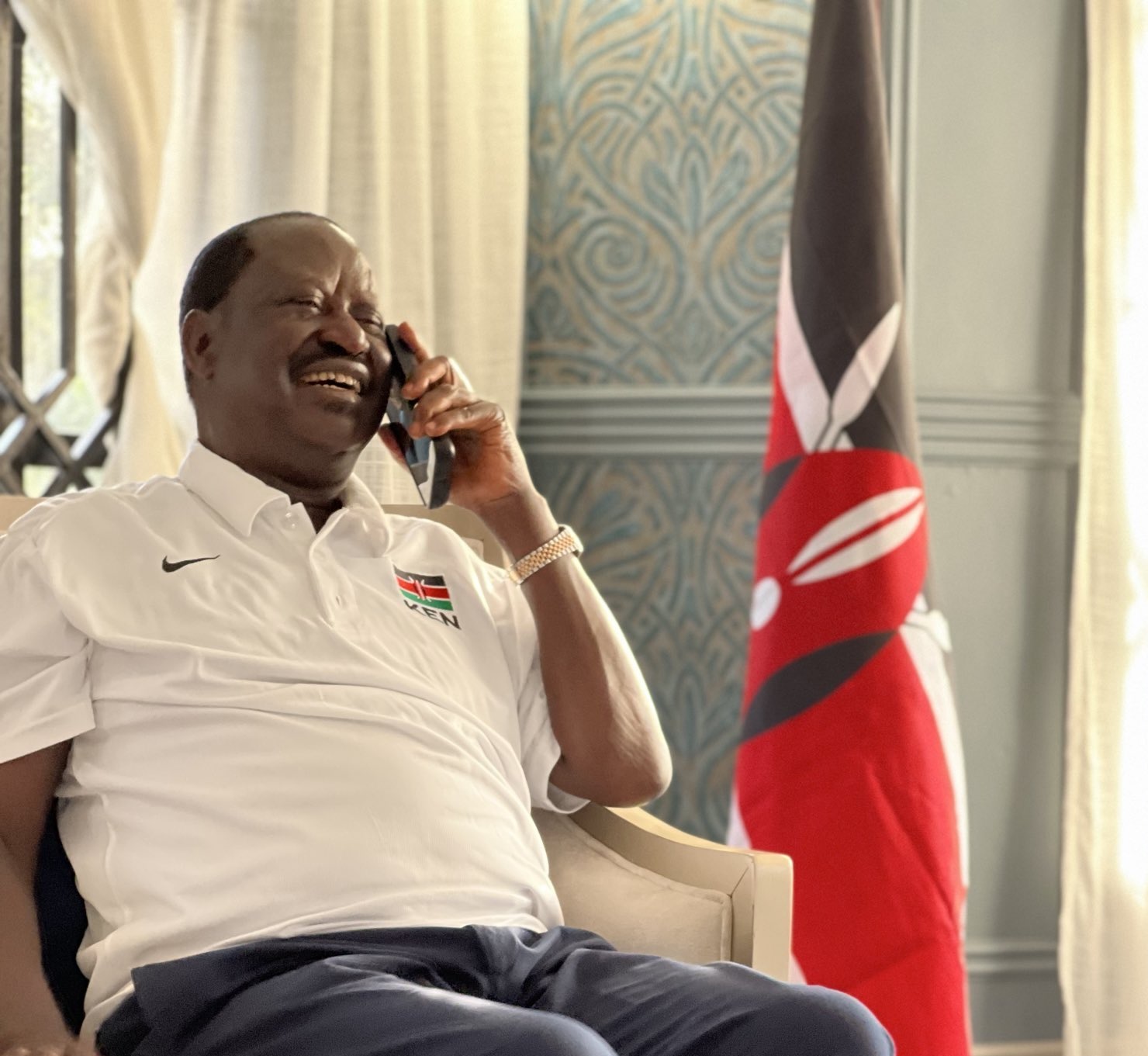Business
Billionaire: Inside Raila Odinga’s Vast Wealth
Odinga’s business acumen was shaped by his early experiences, including helping run a family bus company in Nyanza and his engineering studies in East Germany.

The death of Raila Odinga in India this week has cast a spotlight on the extensive business portfolio that the veteran politician built alongside his storied career in public service.
While Odinga was widely known for his five presidential bids and roles as prime minister and opposition leader, his entrepreneurial pursuits formed a parallel legacy, one rooted in manufacturing, energy and strategic investments that positioned his family as key players in Kenya’s economy.
Odinga’s net worth has long been a subject of speculation, with estimates varying widely due to the private nature of his holdings.
In past interviews, he described the family’s wealth as conservatively around Sh2 billion, though analysts and recent reports suggest it could be significantly higher, potentially exceeding Sh50 billion when accounting for real estate, equity stakes and regional operations.
This places him among Kenya’s elite billionaires, with assets spanning continents and sectors that reflect a blend of inherited influence and self-made ventures.
At the core of Odinga’s empire stands East African Spectre, the LPG cylinder manufacturing company he founded in 1971 after selling his Opel car to raise initial capital.
Starting small at the Kenya Industrial Estate with a monthly output of just 30 cylinders, the firm grew under Odinga’s hands-on leadership.
He collaborated with his father, Jaramogi Oginga Odinga, to establish it, and today it employs over 150 people at its Mombasa Road facility in Nairobi.
Odinga held 90,000 shares, while the estate of his father owns 262,500, and other family members like his brother Oburu and wife Ida also have significant stakes.
The company not only addressed Kenya’s reliance on imported cylinders but also played a role in developing local safety standards, with Odinga pushing for the creation of the Kenya Bureau of Standards during his tenure there.
Odinga’s vision extended to energy, where the family holds a substantial 35 percent stake in Be Energy through Pan African Petroleum Company.
This oil-marketing firm, partnered with Saudi Arabian tycoon Sheikh Abdul Kader Al Bakri’s International Energy World, has climbed to become Kenya’s fifth-largest petroleum dealer, controlling 3.52 percent of the market in the 2024/25 financial year after selling 205,369 cubic metres of products like petrol, diesel and jet fuel.
Exports to neighboring countries such as South Sudan, Uganda and the Democratic Republic of Congo have fueled its growth, with Odinga’s son, Raila Junior, overseeing Kenyan operations.
The family’s shareholding is distributed among siblings and relatives, underscoring a collective approach to wealth management.
Not all ventures were unqualified successes. Spectre International, another family enterprise focused on molasses processing, ceased operations in 2017 amid debts exceeding Sh44 million to creditors and staff.
Acquired in the 1990s for Sh570 million, the plant on 240 acres of land highlighted the risks of industrial investments, yet it also demonstrated Odinga’s ambition to tackle Kenya’s manufacturing challenges.
Despite the setback, the family’s real estate holdings, including properties in Nairobi’s upscale Karen area and Nyanza region, provide a stable foundation, with multi-million shilling assets bolstering overall wealth.
Odinga’s business acumen was shaped by his early experiences, including helping run a family bus company in Nyanza and his engineering studies in East Germany.
He maintained a clear separation between politics and commerce, even as his public statements occasionally rippled through markets.
For instance, his 2007 comments on the Nairobi Securities Exchange led to a temporary sell-off, which he later addressed directly.
In tributes following his death, the Kenya Private Sector Alliance praised his establishment of the Prime Minister’s Roundtable in 2010, fostering public-private dialogue that influenced policy.
Even in passing, Odinga’s influence persists.
The closure of Jomo Kenyatta International Airport for two hours upon the arrival of his body disrupted business, while mourning crowds halted operations in major towns.
As his state funeral unfolds today and burial on Sunday in Bondo, the focus shifts to how his heirs will steward this empire. With interests in energy poised for expansion amid Africa’s growing demand, the Odinga legacy in business appears set to endure.
Kenya Insights allows guest blogging, if you want to be published on Kenya’s most authoritative and accurate blog, have an expose, news TIPS, story angles, human interest stories, drop us an email on [email protected] or via Telegram
-

 Grapevine1 week ago
Grapevine1 week agoAlleged Male Lover Claims His Life Is in Danger, Leaks Screenshots and Private Videos Linking SportPesa CEO Ronald Karauri
-

 Lifestyle2 weeks ago
Lifestyle2 weeks agoThe General’s Fall: From Barracks To Bankruptcy As Illness Ravages Karangi’s Memory And Empire
-

 Grapevine6 days ago
Grapevine6 days agoRussian Man’s Secret Sex Recordings Ignite Fury as Questions Mount Over Consent and Easy Pick-Ups in Nairobi
-

 Investigations4 days ago
Investigations4 days agoMulti-Million Dollar Fraud: Three Kenyans Face US Extradition in Massive Cybercrime Conspiracy
-

 Economy3 days ago
Economy3 days agoIran Demands Arrest, Prosecution Of Kenya’s Cup of Joe Director Director Over Sh2.6 Billion Tea Fraud
-

 Investigations2 weeks ago
Investigations2 weeks agoEpstein’s Girlfriend Ghislaine Maxwell Frequently Visited Kenya As Files Reveal Local Secret Links With The Underage Sex Trafficking Ring
-

 News2 weeks ago
News2 weeks agoState Agency Exposes Five Top Names Linked To Poor Building Approvals In Nairobi, Recommends Dismissal After City Hall Probe
-

 News2 days ago
News2 days agoTHE FIRM IN THE DOCK: How Kaplan and Stratton Became the Most Scrutinised Law Firm in Kenya
















